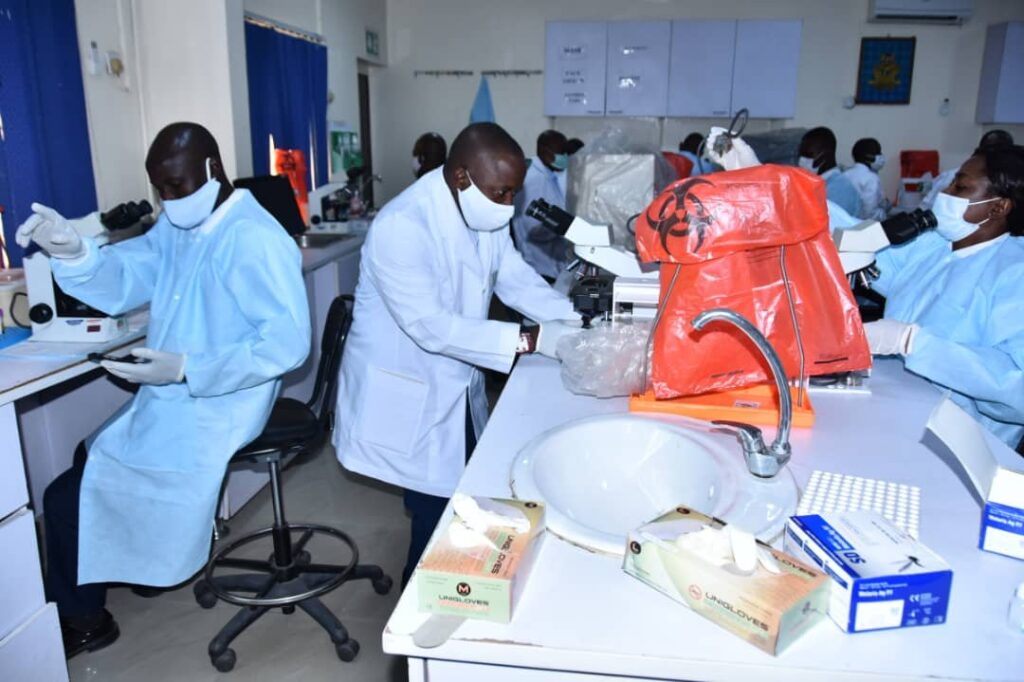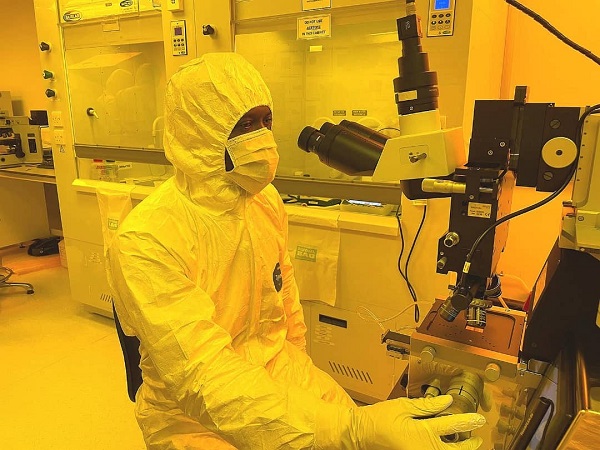In a compelling wake‑up call to Nigeria’s scientific community, Dr. Oluwafunmilola Akinpelu—a distinguished organic chemist at the University of Ibadan—has issued a timely appeal: it’s high time our laboratories put safety first, modernise their procedures, and embrace technological innovations to safeguard both people and the planet.
Table of Contents

A Safety Crisis Unfolds
Dr. Akinpelu’s warning is not speculation; it reflects an alarming reality. Despite routinely handling highly toxic chemicals, many Nigerian laboratories remain grossly underprepared. She highlights a prevailing negligence where essential safety infrastructure—such as Standard Operating Procedures (SOPs), Material Safety Data Sheets (MSDS), safety checklists, and even personal protective equipment (PPE)—are either poorly implemented or entirely absent. What’s more, the absence of designated safety officers further magnifies the risk. In Dr. Akinpelu’s own words: “The first focus of laboratory personnel should be safety and safety first, no matter the urgency of the work.”
Lessons from South Africa: Robotic Chemistry to the Rescue
Dr. Akinpelu’s advocacy isn’t founded on rhetoric—it’s backed by evidence from her recent study in South Africa, where robotic chemistry is actively reshaping lab safety. Automated systems now perform hazardous tasks like extraction, synthesis, reaction control, and waste disposal with precision, reducing the risk of human error. According to her, automation doesn’t just boost efficiency; it significantly curtails the likelihood of accidents.
A System Outpaced by Science
Many Nigerian institutions still prioritise output over protocol. The pressure to deliver results, she argues, often trumps the importance of safe practices. This backwards emphasis compromises not just the well‑being of personnel but also the integrity of scientific research. The glaring lack of documentation and oversight makes laboratories ticking time bombs—ripe for accidents that could have been prevented.

The Double-Edged Promise of Digital Innovation
Moving beyond hardware, Dr. Akinpelu envisions the integration of digital tools into everyday lab procedures. Virtual learning platforms—especially simulations of chemical reactions and lab operations—could equip students with vital safety knowledge long before they step foot into a real lab. It’s a clever workaround for resource constraints and a powerful method to ingrain safe practices early in training.
Making It Happen: What Institutions Should Do
- Standardise Safety: Exhibit due diligence by drafting, distributing, and enforcing SOPs, MSDS, and safety checklists.
- Appoint Safety Officers: Install a safety custodian—someone to monitor, report, and improve ongoing practices.
- Provision of PPE: Guarantee every scientist, technologist, and student has access to gloves, goggles, lab coats, and respirators suited for their tasks.
- Invest in Automation: Explore basic automation for repetitive, high‑risk steps in lab workflows to minimise exposure.
- Introduce Digital Training: Incorporate virtual lab modules and risk‑management simulations into academic curricula.
- Foster a Safety-First Culture: Champion processes over outcomes—make safety the bedrock of scientific work, not an afterthought.
Why This Approach Matters for Nigeria
This call isn’t just academic—it’s deeply practical.
- Protect Personnel: Automated systems and sturdy protocols shield scientists and students from exposure to harmful substances.
- Boost Research Quality: Minimising human error preserves the reliability and credibility of experimental outcomes.
- Enhance Institutional Reputation: Institutions that prioritise safety attract partnerships, funding, and the confidence of stakeholders.
- Build Future Resilience: When safety is second nature, it fortifies the sector against crises and fosters long-term innovation.
Overcoming Hurdles: Hope In Spite of Constraints
Nigeria’s research landscape often grapples with tight budgets and outdated infrastructure. Still, Dr. Akinpelu sees room for innovation even within limitations. Simple steps—like developing SOPs in-house, seeking industry support for PPE, or adopting open-source software for automation tasks—can start a safety revolution from the ground up. International grants and collaborative initiatives may offer further leverage to under-resourced labs.
Voices from the Ground: Echoes of Agreement
Several initiatives already resonate with Dr. Akinpelu’s vision:
- At UNILAG, the chemistry faculty produced a trio of educational aids—an instructor’s manual, a student workbook, and PowerPoint slides—aimed at embedding chemical safety and security into teaching materials.
- The National Agency for Food and Drug Administration and Control (NAFDAC) celebrates the WHO pre-qualification of its Yaba Central Drug Control Laboratory, a milestone that underscores international recognition of quality and safety.
These efforts reflect a growing momentum—but Dr. Akinpelu’s call serves as the catalyst Nigeria needs to unify and scale these gains across all science laboratories.

Conclusion
Dr. Oluwafunmilola Akinpelu’s message is simple yet profound: “Safety first, always.” Now more than ever, as Nigeria pursues scientific progress, it must also elevate the systems that safeguard its practitioners and sharpen its research integrity.
By standardising procedures, deploying digital tools, championing safety culture, and embracing automation, Nigerian laboratories can evolve—from fragile and accident-prone spaces into models of modern, secure scientific pursuit.
This isn’t about choosing between safety and speed; it’s about ensuring that speed doesn’t come at the cost of safety. Let us heed the call—and move forward, boldly and responsibly.
Join Our Social Media Channels:
WhatsApp: NaijaEyes
Facebook: NaijaEyes
Twitter: NaijaEyes
Instagram: NaijaEyes
TikTok: NaijaEyes
READ THE LATEST EDUCATION NEWS







































